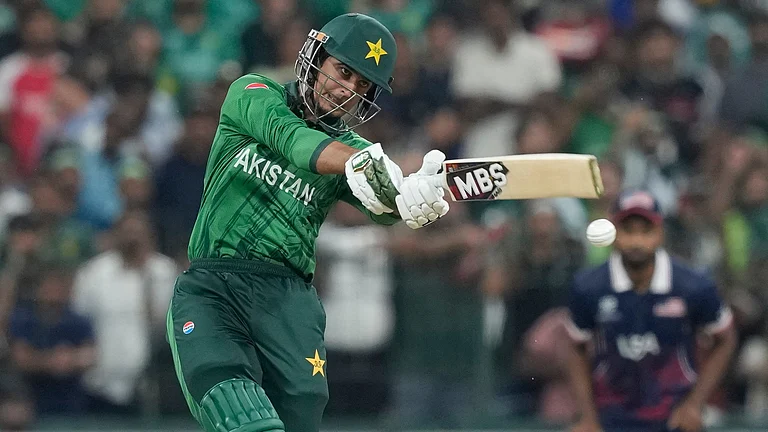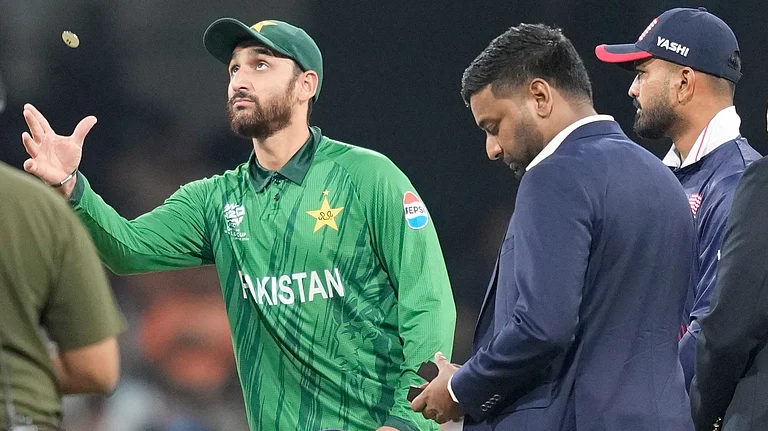They are wrong. The real impact is as much indirect as it is direct. The decision to sanction India and Pakistan raised a question in financial markets across the world. It will make those confronting important investment decisions think twice about whether this is where they want to put their money now. We are seeing the indirect impact in the withdrawal of some foreign institutional investment from the Indian stockmarket. I'm sure we will see it in the difficulty in arranging financing for big projects that the government wants to undertake. And this will not be unilateral—it will also be Japanese and European financial institutions, and I think they'll put up a go-slow sign.
What does the Prime Minister's hint to the Washington Post that it will retaliate against the sanctions say about future bilateral relations?
The Indian government has to decide what kind of a relationship it wants with the US and then work toward that end, just as we have to decide what kind of a relationship we want with India. We would like to fashion an improved relationship, one that is worthy of the 21st century. But that requires a level of nuclear responsibility, on the Indian government joining the 149 nations who have signed the CTBT, the 185 nations who observe the NPT. So there is a choice that has to be made by India and we respect that choice—we don't dictate to the government of India what it wants in a relationship with the US.
US sanctions on China lasted for just two years. The Cuban embargo has lasted for 30 years. So do we look at Cuba or at China?
I don't think we look at Cuba or China. We need to look at India and the US. India is a friend, a democracy that seeks to exercise leadership as a major nation.I hope that as India considers that role, it will decide to play a very positive role in terms of the effort to control nuclear arms, to prevent their proliferation and to bring them under a regime that will reduce all of our nuclear weapons. The sooner we get on that course, the sooner the prospect of these sanctions being lifted. These sanctions are imposed by an act of Congress without any easy means of moderating or modulating them. The only way they can be lifted is by another act of Congress—so whatever India chooses to do, and whatever our two governments choose to do together, will have to be sufficiently positive to persuade Congress to lift the sanctions.
But the prime minister has asserted that India's nuclear tests were a way to total disarmament.
I have a very high regard for the prime minister, so I am reluctant to take a contrary view. But as a student of history, it is hard for me to agree with him. If you look at the past few years, virtually all of the momentum has been to foreswear nuclear tests and weaponisation. South Africa had a nuclear weapons capability,but dismantled its weapons. Brazil and Argentina had the capacity but agreed to forego that capacity. Countries like Ukraine, Belarus, Kazakhstan inherited nuclear weapons and gave them up. And 149 nations signed the CTBT. So it is very hard to make the case that these tests advance the cause of nuclear arms control.
Why doesn't Washington realise that its mantra that India unconditionally sign the CTBT is futile?
Well, France and China signed the CTBT after they tested. I am not sure why India should hesitate to sign now. It has after all declared a moratorium on testing and is prepared to consider some de jure formula.
Is that not enough?
Well, that is not enough. We have had moratoria in the past and countries have seen fit to halt them. I think a de jure commitment is another matter, but the question is, what form might that take? I hope that constructive diplomacy will lead all of us to a place where India is comfortable with signing the CTBT.
What are you telling companies like Enron, GE, Boeing who have significant opportunities in India?
We certainly encourage and support any company that is eager to do business in India. But we do not want to subsidise those markets by providing relatively easy financing through the import-export bank. This is the decision of the Glenn Amendment. Major US companies will continue to do business in India and we do not intend to discourage them.
But it does create problems for them...
My impression is that we have got very strong, very competitive companies which will continue to work very hard to do business here.
How do you plan to work on future relations with India?
I am going to work hard to earn my pay. We need to make sure that we are good listeners, that we communicate clearly what our concerns are. I believe that my president still hopes to achieve a qualitatively better relationship with India as we move into the 21st century.






















.png?w=200&auto=format%2Ccompress&fit=max)



